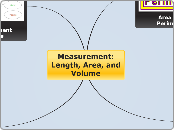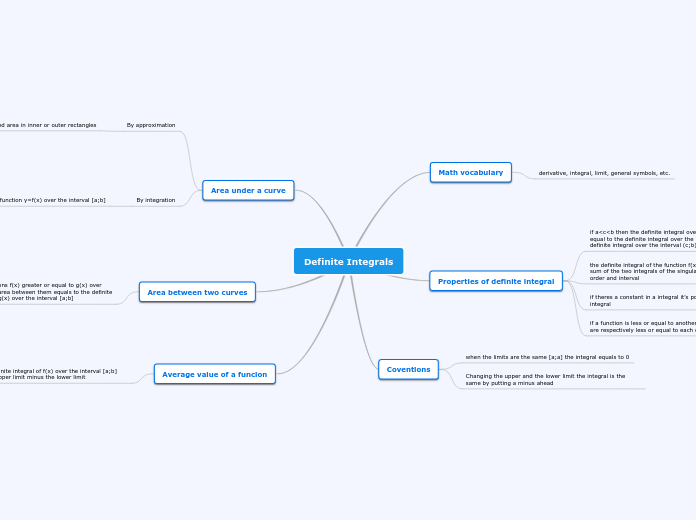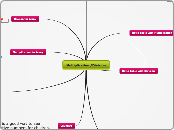Measurement Project Concept Map
Jasmine- Geometric Figures
Adam- Surface area, volume, pythagorean theorem
Kylie- Area and Perimeter
Area and Perimeter
Perimeter
SQUARE
To find the peimeter of a square all you have to do is multiply what ever number is shown for the sides by four because all of the sides on a square are the same size.
CIRCLE
To find the perimeter of a circle you use the formula
Circumfrence= Pie*diameter or Circumfrence=Pie*Radius *radius
TRIANGLE
To find the perimeter of a triangle you simply add up all of the sides if all of the sides lengths are given. If on the other hand the triangle has a missing sign you then use the pythagorean Theorem which looks like this
A2+B2=C2
Area
CIRCLE
To find the area of a circle you use the formula
Area=pie*diameter or if you just have the radius then the formula is Area=pie*radius*radius
RECTANGLE
To find the area if a rectangle you multiply length times width
TRAPIZOID
To find the area of a trapizoid you take the sum of the bases and then multiply by the height of the trapizoid, and then you divivde the number by two. Viola!
Volume of Polyhedrons
How to find the volume of Polyhedrons
The first thing we have to do in order to solve this problem is to fing the area of the base. To do that we need to multiply Lxh. 6x4=24. 24 is now B. Remember the equation to find the volume of pyramids is (1/3)xBxh=V. we can now plug in B and h and proceed to find the volume. (1/3)x24x5 is what our equation looks like now. multiplying that out gives us 40. 40 u^3 is the volume of this pyramid
For This Example h=5, w=4, L=6
Pyramids: One third of the area of the base times the height. Equation: (1/3) x B x h B=Area of base h=height
Prisms: The area of the base multiplied by the height. Equation: B x h B=Area of base h=height
Volume is the measure of the space inside a three-dimentional figure.
Main topic
Surface Area Polyhedrons
For this example the height(h) is 4, the length(L) is 5 and the width(w) is 3.
The first thing that needs to be done is finding the area and perimeter of this shape's base. The perimeter of the base is 2(5) + 2(3)= 16 = p The Area of the base is 5 x 3 = 15 = B Remember our equation for finding the surface area of prisms is 2B + ph. Since we know all the variables we can plug them in now. 2(15) + 16(4) - 30 + 64 - 94 u^2 = Surface area
Surface Area Equations
Key: B=Area of th base, p=Perimeter of the base, h=height
Pyramid: B + (1/2)ph
Prism: 2B + ph
Polyhedrons are the 3-D shapes that are made up of several flat faces. Some Examples are in the Pyramids and Prisms section.
Surface area: The total area of the surface of a three-dimensional object
Geometric Figures
Prisms and Pyramids
Pyramids
-a simple closed surface given by a polygon (its base) and a point not in the plane of the polygon, called its apex or vertex.
-the pyrmaid is the union of the base with all of the triangular faces that rise from the base edges to the apex.
*Polyhedron determined by polygon ( example. rectangular base = rectangular pyramid)
*points not in the plane
*does not have two congruent faces
Prisms
Prism - a simple closed surface that consists of two congruent polygons which are in parallel planes (bases) and the lateral faces joining the bases, which are parallelograms
* Two congruent faces (the bases)
*Have to be parallel planes
*other faces are bound by parallelograms
two dimensionsal vs. three dimensional:
- a prism is three dimensional and belongs on two planes in space, whereas a two dimensional figure only has one plane.
oblique prism
the edges between the bases are not perpendicular to the plane of the base
right prism
if the lateral faces of a prism are all rectangles
Classification of Polygons
How to find the measures of a Polygon
in a regular n-gon ( n = number of sides)
(x = multiply)
- each interior angles has a measure (n - 2) x 180 degrees/ n
- each exterior angle has measure 360 degrees / n
- each central angle has measure 360 degrees / n
Regular Polygons
polygons that include
some degree of symmetry
Regular polygon- a convex polygon that is both equiangular and equilateral
equilateral- a polygon with all congruent sides
equiangular- a polygon with all equal angles
Circles
- a circle is a two- dimensional shape (mathisfun.com)
-the set of all points that are an equal distance from the center
Types of Quadrilaterals
A quadilateral means "four sides" so is any four sided shape
Types of Triangles
Classification by side lengths
Isosceles
When two sides have the same length
Equilateral
all three sides have the same length and are congruent
Scalene
all three sides have a different length
( no two sides are congruent)
Classification by angle measure
Obtuse
if one angle has a measure more than 90 degrees.
Right
one angle is a right angle (90 degrees)
Acute
all three interior angles are less than 90 degrees
Angles
Definition of an Angle: A shape, formed by two lines or rays diverging from a common point known as the vertex.
( www.mathopenref.com )
< = angle
The sum of angle measures in Triangles
the sum of all angles in
a triangle is 180 degrees.
Angle Measure
- the number of degrees of turn to rotate about the vertex (middle point)
-Measured in degrees
Classification of angles
Corresponding angles
corresponding angles property:
- when two parallel lines are cut by a transversal (intersecting line), then their corresponding angles have the same measure
-if two lines in the plane are intersected by a transversal and some pair of their corresponding angles has the same measures, then the lines are parallel
Alternate-exterior-Angles
The pair of angles on the opposite sides of the transversal but outside the two lines (mathisfun.com).
Alternate- Interior- Angles
The pair of sides on the opposite of the transversal, but inside the two lines (mathisfun.com).
Vertical angles
- vertical angles are congruent
Two nonadjacent angles
formed by two
intersecting lines
Congruent angles
When two angles are congruent, they are also equal !
when two angles
have the same
exact measure
Complimentary angles
when the sum of two
angles measure 90
degrees.
Supplementary angles
when the sum of two
angles measure
180 degrees
Pythagorean Theorem
To solve for C: Plug in the numbers you can into the equation A^2 + B^2 = C^2. Since we know A and B we can plug those in, gic=ving you 5^2 + 12^2 = C^. This can be simplified to be 169 = C^2. Taking the square root of both 169 and C^2 you are left with the answer: C = 18.
For this example lets suppose that A=5 and B=12.
Pythagorean Theorem: a^2 + b^2 = c^2
-The Pythagorean Theorem is an equation devised to find the slope opposite the 90 degree angle or right Triangles. A^2 + B^2 = C^2 is the relationship between the sides of the triangle in regard to length.
-This equation only works on right triangles
- A is the height, B is the width and C is the length of the slope.
The Pythagorean Theorem Is an equation devided to find the length of the slope opposite the 90 degree angle in right triangles. A^2 + B^2 = C^2 is the relationship in length between the sides of the triangle.









